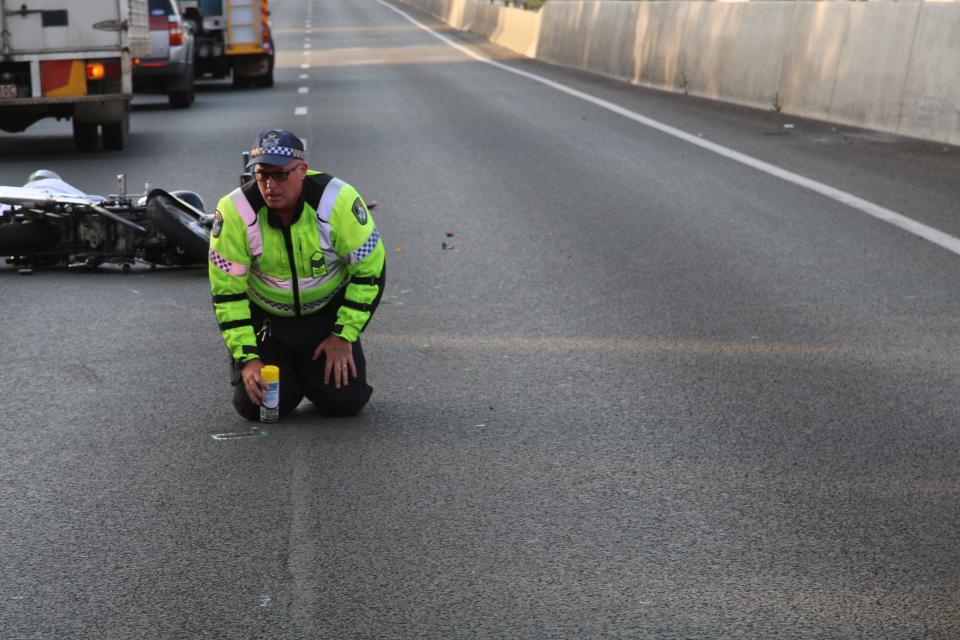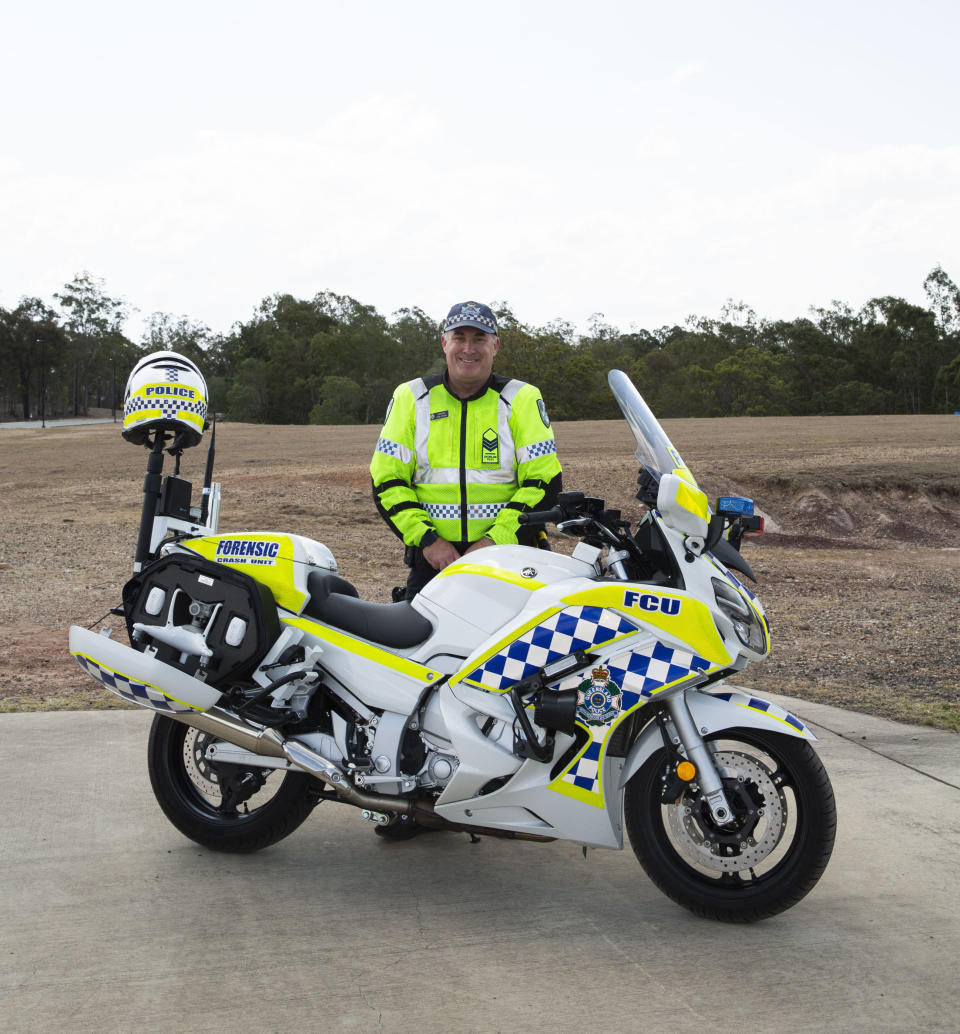'Destroying a family': How police officer delivers news of road fatalities to loved ones
“I can close my eyes and remember that first fatal traffic crash.”
Those are the words of Sergeant Carl Cutler, a senior investigator for the Queensland Police’s Forensic Crash Unit, who has witnessed tragedy first-hand.
“I can remember how cold it was that night, I can remember the smell of the oil coming out of the vehicle onto the road,” he told Yahoo News Australia.
“I can remember the driver being stuck behind the steering wheel, still breathing at that time.”
The first fatal crash Sergeant Cutler attended was in 1994 in New Zealand.
He came to Australia in 2004 after a career with the New Zealand Police and he made his way up through the Queensland Police.
“Unfortunately, there’s been hundreds of crashes since then,” he said.

Sergeant Cutler says for all crash site investigators, they all have a similar story, they are all impacted by every crash they go to and they all remember at least aspects of every single crash.
He explains investigators become “custodians” of that persons end of life.
“We need to be able to, at that time, disassociate with what is in front of us, so we can gather the evidence, to tell the story of what’s happened.”
He says the crashes are “traumatic and horrific”, but from the moment Sergeant Cutler is at the scene, he needs to look at injuries on the person, or persons, involved to determine where everyone was at the time of the crash.
'It’s so dangerous': The biggest hazard on the road scaring paramedics
'It basically cooked his feet': Chilling details from a road crash responder on the front line
“Our role is different from ambulance and fire, they are obviously trying to preserve life and save those people, whereas our role as crash investigators is to find out what happened, determine if anyone has committed any criminal act and be able to tell the coroner and next of kin why this crash happened.”
Sergeant Cutler says every time he has to speak with the next of kin, and tell them they have lost a loved one, you are “destroying a family”.
“You haven’t done the action yourself that has caused that destruction, but you’re about to be the bearer of bad news which is going to devastate people,” he said.
He likens the experience of bearing the bad news to the “ripple effect” – the loved one’s life lost in a car wreck being the stone you drop into water, and the waves being the result of the fatal crash.

You never know how someone is going to take the news, he explains, and it takes mental preparation when you’re en route to tell a family their loved one is never coming home, and trying to figure out how you’re going to break the news.
“There’s no way to tell someone their loved one is never coming home again,” Sergeant Cutler says.
People faint on the spot, others will assault the officers, there’s no telling how people are going to react.
“We understand this is the most traumatic news this person has had, and it’s only just started for them.”
Just recently, Sergeant Cutler attended a crash scene where a young man died, the man had a young family and a pregnant wife.
“He maybe made a mistake with his driving manner on the way home,” explaining the man was on a motorbike.
“What do you tell that family? How do you help that family cope with that huge loss?”
Sergeant Cutler admits he does not have the answer to questions like that.
He says even if someone is charged with criminal offences for committing an offence which resulted in the loss of life, the family will never be satisfied.
“They’ve lost that important person in their life, and nothing we do, no matter how we punish those responsible people, will bring that person back for those who are left behind,” he said.
Speeding, drink driving, texting while driving, Sergeant Cutler has seen it all.
He says crashes happen generally because someone has done something they should not have, or someone hasn’t done something they should have done.
“I challenge people to put me out of the job,” he says.
“Make a crash investigator a redundant job, make me unemployed. Make it so I don’t have to go to another crash.”

Sergeant Cutler urges people to take their time, pay attention to the road and turn their mobile phone off.
His advice for drivers this holiday period is the same as it is year round – be alert and don’t drive if tired.
He says fatigue is a huge issue, especially for those travelling along vast stretches of highways, which makes for boring and monotonous driving.
‘I just had this gut feeling’: Devastating moment mum discovers 20-year-old’s crash death
The most dangerous behaviours teens engage in behind the wheel
He advises to do whatever you can to prevent driving while fatigued – swapping drivers, or even taking a break.
“Stop the car, stretch your legs. If that five minute stop becomes a ten minute stop, or a 20 minute stop, you will still get to your destination at the end of the day, but you’re making it more likely you’re going to get there,” he said.
Do you have a story tip? Email: newsroomau@yahoonews.com.
You can also follow us on Facebook, Instagram and Twitter and download the Yahoo News app from the App Store or Google Play.




